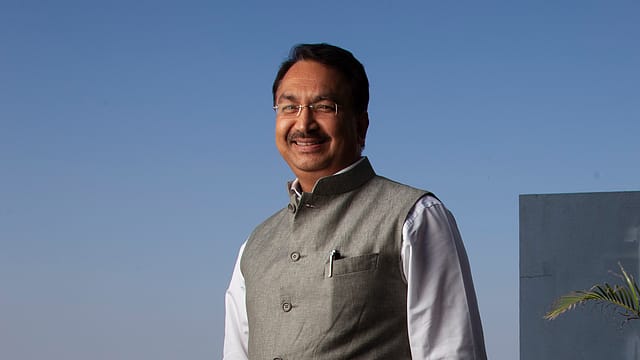Obituary: Vikram Kirloskar, a passionate engineer who loved building factories
ADVERTISEMENT

Vikram Kirloskar, widely regarded as the man who convinced Japanese automaker Toyota to foray into India, succumbed to a massive heart attack late last night. The untimely death of the 64-year-old has left the Indian automobile industry bereft of a stalwart—who was one of the most recognisable faces of the industry. Kirloskar is survived by his wife Geetanjali, and daughter, Manasi—who was appointed as a member of the board of directors of Toyota Kirloskar Motor last year, and is also the CFO of Kirloskar Systems. It is yet to be ascertained whether Manasi will succeed her father in the positions he held.
Vikram was a fourth-generation scion of the famed Kirloskar family—whose lineage goes back to 1888. In his formative years, the weight of the family name was palpable, as expectations were high. Vikram, although a fervent industrialist by profession, was an engineer trained in the hallowed halls of the Massachusetts Institute of Technology (MIT). In retrospect, He believed his education at MIT contributed immensely to his career—for engineering is the cornerstone of Kirloskar's business. In fact, he spent the first four to five years of his career in the factory as an engineer—where his practical work at MIT helped him. He was also involved in different facets of manufacturing in the initial years.
Even though born with a silver spoon, in one of the most illustrious business families in India, Vikram's life, by his admission, was not a bed of roses. Vikram worked all his life, right after finishing school. He even worked at summer camps in the U.S. and came back home only twice for a holiday in six years.
Like most of his ilk, Vikram returned to India to join the family business, first as a trainee in manufacturing at Kirloskar Cummins in Pune. Even though Vikram is recognised for diversifying his business from pumps, and engines, to automobiles, he thought otherwise. For him, it was always centric to engineering and manufacturing. His partnership with Toyota first began in the textile business, and in 1997, Toyota Kirloskar Motor—the joint venture for the manufacturing of passenger vehicles—was incepted. The partnership has further expanded to manufacture engines, drive-shafts, and transmissions, along with heat exchangers and air conditioners with another Toyota company, Denso.
His belief was that the basis of his long, successful relationship with Toyota was the mutual respect they had for one another, and a love for monozukuri (Japanese for production/manufacturing). The road with Toyota has not always been a smooth one. Labour unrest was rife at the manufacturing plant of TKM, and Vikram said that the company is doing everything in its capacity to curtail labour strikes. Vikram was no stranger to curveballs in business, as he once recounted a difficult phase during his time at Mysore Kirloskar—when most of its revenue and profit was from the markets in Russia and Germany, and both collapsed in the same year. This was an extremely tough time, and despite making every effort in developing new products for new markets, he was unable to put to bed the business issues in the long term.
Vikram believed in maintaining the equilibrium between life and work, and when he was not at the helm of his business empire, he was an avid golfer with his wife, but according to him, what he enjoyed the most was spending time with his family. A globetrotter, he travelled across the world, but largely spent the last two years caged in an eclectically-designed bungalow housed in the Kirloskar Business Park in Bengaluru because of the pandemic. He was also an epicurean in his own right—a wine connoisseur who loved collecting wines and dabbled in cooking.
With TKM, Vikram virtually set up the automobile manufacturing industry in Karnataka. His efforts were recognized by the Government, and he was felicitated with the "Suvarna Karnataka" award. In his lifetime, he developed at least 25 greenfield sites. Last seen in the public eye at the launch of the Toyota Hycross, his departure has left a void in the Indian automobile industry, which is on the cusp of mainstreaming newer, environment-friendly technologies—something Vikram championed for. "It (climate change) is a critical strategic requirement that businesses must address at all cost, as a collective responsibility," reads his tweet.